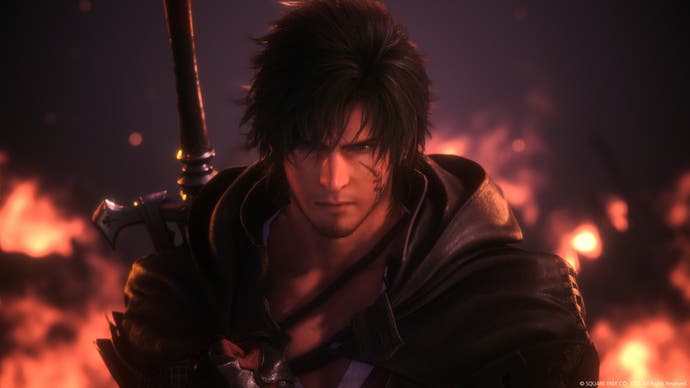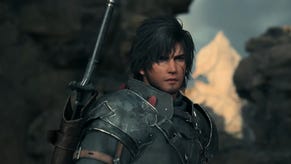Naoki Yoshida addresses Final Fantasy 16's lack of diversity
"We simply want the focus to be less on the outward appearance of our characters and more on who they are as people."
Final Fantasy 16 producer Naoki Yoshida has addressed the lack of diversity in Final Fantasy 16, specifically the lack of both ethnic diversity and women.
Speaking to IGN, Yoshida was asked to comment on responses to the latest trailer that features mostly white characters.
Yoshida admitted it was a difficult question to answer, but that the lack of diversity fits the "isolated nature of this realm" - Valisthea, where the game takes place.
"This is a difficult question, but not one that was unexpected, seeing as diversity in entertainment media has become a much-discussed topic as of late. The answer I have, however, may end up being disappointing to some depending on individual expectations," he said.
The game's design has heavily featured medieval Europe and Yoshida felt "rather than create something on a global scale, it was necessary to limit the scope to a single landmass - one geographically and culturally isolated from the rest of the world in an age without airplanes, television, or telephones".
"Due to the underlying geographical, technological, and geopolitical constraints of this setting, Valisthea was never going to realistically be as diverse as say a modern-day Earth... or even Final Fantasy 14 that has an entire planet (and moon) worth of nations, races, and cultures at its disposal. The isolated nature of this realm, however, does end up playing a large part in the story and is one of the reasons Valisthea's fate is tied to the rest of the world.
"Ultimately, we felt that while incorporating ethnic diversity into Valisthea was important, an over-incorporation into this single corner of a much larger world could end up causing a violation of those narrative boundaries we originally set for ourselves. The story we are telling is fantasy, yes, but it is also rooted in reality."
Yoshida also said that as players will experience conflict and struggle through realistic battles in the game, "it can be challenging to assign distinctive ethnicities to either antagonist or protagonist without triggering audience preconceptions, inviting unwarranted speculation, and ultimately stoking flames of controversy."
He continued: "In the end, we simply want the focus to be less on the outward appearance of our characters and more on who they are as people - people who are complex and diverse in their natures, backgrounds, beliefs, personalities, and motivations. People whose stories we can resonate with. There is diversity in Valisthea. Diversity that, while not all-encompassing, is synergistic with the setting we've created and is true to the inspirations from which we are drawing."
The lack of diversity in the cast has been the biggest criticism of the game so far, following each of its trailer reveals.
Localisation director Michael-Christopher Koji Fox also responded on whether we'll see more female characters on a par with series favourites Celes, Aerith, or General Beatrix.
"[Final Fantasy 16's] story, however, has, since the early concept phase, always been about Clive. But as is the case with all Final Fantasys, Clive’s story is about encounters. It is about companions. It is about relationships and how, through those relationships, Clive grows," he said.
"These companions, however, are not simply static, one-dimensional plot devices there to prop up Clive. They have their own pasts, their own motivations, and these are explored in-depth as the player progresses through the story. One such character does end up being featured more prominently. Strong, yet flawed. Brave, yet full of doubt, her relationship with Clive affects him in ways that reverberate throughout his arc."
In its latest financial report, Square Enix stated it was "critical for [its] business that [it] produce hit titles that speak to the global market".
A diverse cast would surely be one way of achieving this.
Square Enix was previously criticised when Forspoken's performance director Tom Keegan described the game's Black protagonist as having a "hip-hoppy" walk.
Today the company releases farming sim Harvestella, the first game from the company to offer non-binary in the gender options of its character creator. Producer Daisuke Taka told Eurogamer: "Our game is for everyone".
In another interview with Famitsu, Yoshida said a release date is planned to be announced later this year. It's currently set for summer 2023










